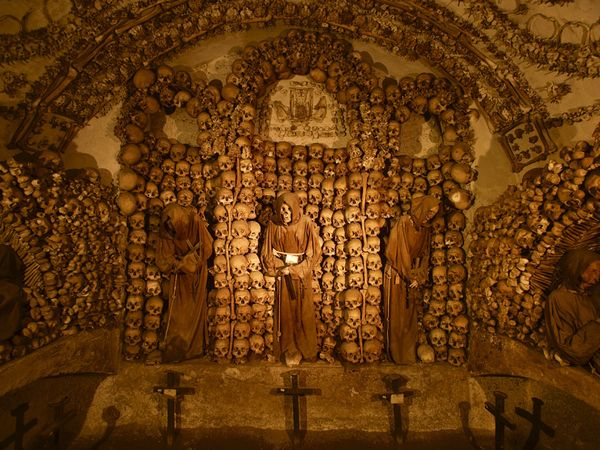Oblitus Mori

A friend asks, apropos of “The Walking Dead” –
[W]hy are Michonne’s zombie slaves still walking around? They can’t eat, thus aren’t getting any fuel or nutrients. Even if we assume the zombie virus in the brain stem can somehow send out electric signals to the nerves forever, at some point–weeks? months?–muscles without protein will atrophy and shrink to the point of non-response, wouldn’t they? So unless the virus has also the chemical properties of human bodies (maybe they use photosynthesis?), I just don’t see how they can go on like this.
If proof were still needed that the whole “zombie virus” trope was a catastrophic mistake, there it is. Like much of contemporary fantasy/horror/sci-fi, the zombie genre has become an inversion of what it is supposed to be.
Zombies are supposed to be dead but still walking around. The horror is, among other things, an existential one: that our dead are coming for us, relentless in their pursuit to reduce us to their condition. We see these shambling, decaying bodies, and are reminded: on some level, that’s us. Inevitably. No matter how hard and how long we fight. A zombie is a particularly hideous memento mori.
Of course, you can take that basic horror and ramify it with specific social/cultural/political points, as Romero and others have done, but you build on that base of existential horror.
The modern “viral” zombie is almost a complete inversion of this. The group doesn’t inevitably and hopelessly succumb; instead, there’s the excitement of watching them (some of them) defeat and escape from the plague. Modern zombie movies are fantasies of election – we identify with the survivors, and so become convinced that we would be like them. And these survivors seem so much more alive than we do – partly because they’ve escaped the constraints of civilization, but not only because of that. Since zombies are death, that fantasy of election is a fantasy of escaping death entirely – precisely the opposite of what a zombie is supposed to make us feel.
“Fido” is 2/3 of the best modern zombie movie (the last act is kind of a mess) precisely because it re-inverts the inversion. In the world of “Fido,” zombies are domesticated by means of the “zombie collar” and turned into cheap labor. Islands of perfect suburbia kept afloat by zombie labor are surrounded by desolate “wilds” where untamed zombies run rampant. The social/economic/ecological satire is plain, but at a deeper level it’s parodying our culture’s domestication of death and our fear thereof, and all the more specific social, economic and environmental horrors are subsidiary to that primal fear. It’s reminding us, via parody, of precisely what standard viral zombie movies are helping us to forget.
Asking, “how do zombies keep moving without being fed” is a little like asking, “how do zombies keep moving after they’re dead.” That’s the point: they keep moving even though they are dead. They are death – entropy – the opposite of life – marching inexorably towards us to assimilate us to their state of non-being. Once you start thinking of them as a form of life, and start asking how they “work,” they aren’t really zombies anymore.
(Of course, all the foregoing can be refuted by looking back to the original zombie myth, which had to do with voodoo mind control. That’s a whole other variety of nightmare, and a perfectly legitimate one. But I maintain that the viral zombie is an abomination.)